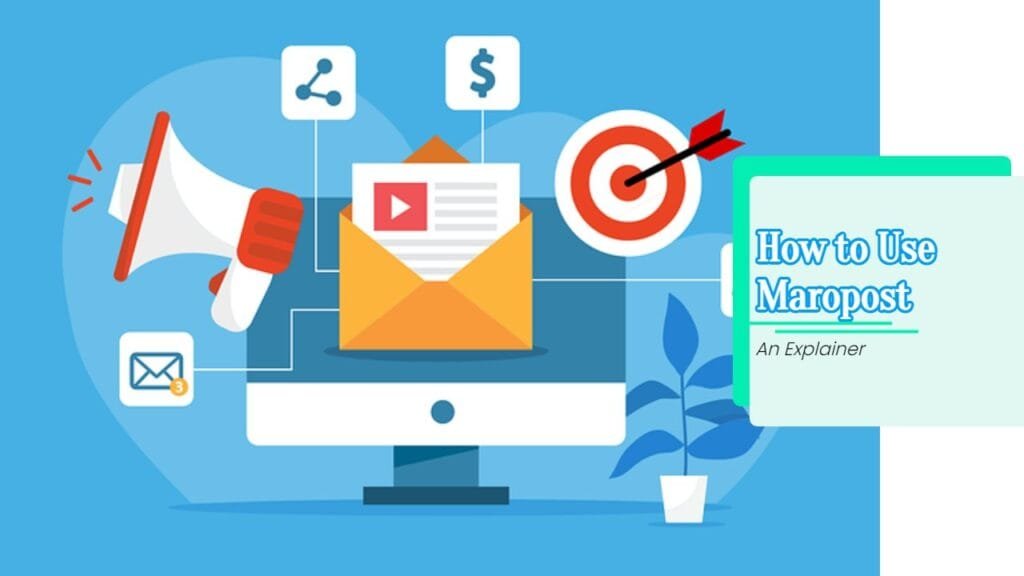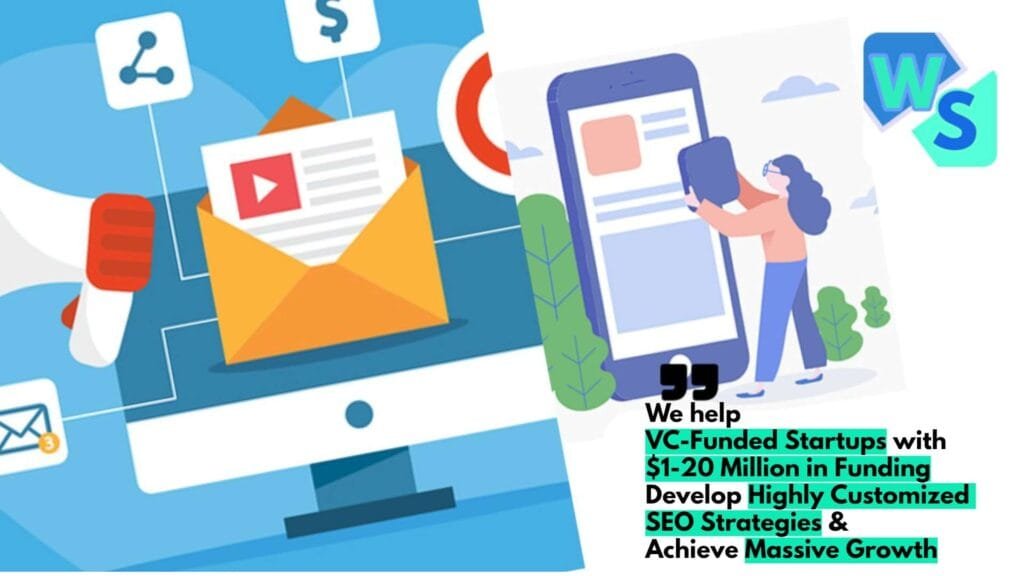Harnessing Google Analytics
Google Analytics is a powerful tool for hotels aiming to enhance their digital marketing efforts. By leveraging insightful data and identifying key performance indicators (KPIs), hotels can make informed decisions to boost bookings and improve guest experiences.
Leveraging Data for Insights
Google Analytics enables hotel owners and marketing professionals to gather comprehensive data from their online platforms. This data is crucial for understanding visitor behaviors, traffic sources, and user engagement (SATUVISION). By leveraging these insights, hotels can refine their marketing strategies and tailor their services to meet the needs of their guests.
Key metrics to monitor include:
- Visitor Demographics: Age, gender, and location of your website visitors.
- Traffic Sources: How visitors are finding your website (e.g., organic search, paid ads, social media).
- User Behavior: Pages visited, time spent on site, and bounce rates.
- Conversion Rates: The percentage of visitors completing a booking or other desired actions.
| Metric | Importance |
|---|---|
| Visitor Demographics | Helps tailor marketing efforts to target audience |
| Traffic Sources | Identifies the most effective channels for attracting visitors |
| User Behavior | Provides insights on website usability and content effectiveness |
| Conversion Rates | Measures the success of marketing efforts in driving bookings |
For more tips on enhancing your online presence, visit our article on video marketing for hotels.
Identifying Key Performance Indicators
To maximize the benefits of Google Analytics, it’s crucial to identify and track KPIs that align with your hotel’s business objectives (SATUVISION). These KPIs provide measurable insights into the performance of your website and marketing campaigns over time.
Important KPIs for hotels include:
- Average Session Duration: Indicates how engaging your content is.
- Page Views per Session: Shows how many pages a visitor looks at during their visit.
- Goal Completion Rate: Measures the effectiveness of your call-to-actions, such as booking forms or newsletter sign-ups.
- Return on Ad Spend (ROAS): Evaluates the profitability of your paid advertising campaigns.
| KPI | Description |
|---|---|
| Average Session Duration | Engagement level of site visitors |
| Page Views per Session | Depth of visitor interest in site content |
| Goal Completion Rate | Effectiveness of call-to-actions in generating leads |
| ROAS | Efficiency of advertising spend in producing revenue |
These KPIs help hotels in spotting trends, optimizing marketing strategies, and increasing revenue through data-driven decisions. Additionally, integrating tools like Salesforce, HubSpot, and Tableau can further enrich the analysis and lead to more targeted marketing efforts (San Francisco Gate).
For more information on improving your digital strategies, check out our guide on hospitality marketing strategies. Additionally, enhancing your Google My Business profile can improve local SEO and drive more traffic to your website, as discussed in our article on local seo for restaurants.
Digital Channels for Hotels
Understanding and leveraging digital channels is crucial for hotels looking to increase bookings and improve customer loyalty. By maximizing traffic sources and implementing effective marketing strategies, hotels can thrive in a competitive market.
Maximizing Traffic Sources
Maximizing traffic sources involves understanding where potential guests are coming from and how they find the hotel. Using Google Analytics, hotels can gather valuable data on visitor behaviors and traffic sources, such as direct traffic, referrals, social media, and search engines (SATUVISION).
| Traffic Source | Percentage of Total Traffic |
|---|---|
| Direct Traffic | 30% |
| Organic Search | 25% |
| Social Media | 20% |
| Referrals | 15% |
| Paid Advertising | 10% |
By analyzing these traffic sources, hotels can identify key performance indicators (KPIs) and tailor their marketing efforts accordingly. For instance, hotels can enhance their SEO efforts to increase organic search traffic or improve their social media engagement to boost referrals.
Effective Marketing Strategies
To effectively utilize digital channels, hotels should employ a diverse set of marketing strategies, each tailored to maximize visibility and engagement. Below are some key strategies:
- Search Engine Optimization (SEO):
Optimize website content for relevant keywords.
Improve website speed and mobile responsiveness.
Create high-quality, engaging content.
Build backlinks from reputable sources.
For more on SEO strategies, see our guide on hospitality marketing strategies.
- Paid Advertising:
- Use Google Ads to target specific demographics.
- Employ retargeting ads to re-engage previous visitors.
- Analyze and adjust ad campaigns based on performance data.
- Social Media Marketing:
Create engaging content on platforms like Instagram, Facebook, and Twitter.
Use influencers to promote the hotel.
Encourage guest interaction and user-generated content.
Discover more about social media marketing for restaurants and how it can be adapted for hotels.
- Email Marketing:
- Build and segment email lists for personalized campaigns.
- Send newsletters with special offers and updates.
- Use automation for follow-up emails and post-stay surveys.
- Online Reputation Management:
Respond to reviews and feedback on platforms like TripAdvisor and Google.
Encourage satisfied guests to leave positive reviews.
Address negative reviews professionally and promptly.
Learn more about online reputation management for hotels.
- Content Marketing:
- Create valuable blog posts, videos, and guides.
- Use storytelling to engage potential guests.
- Share content across social media and email campaigns.
While implementing these strategies, it’s vital to continually monitor performance metrics using tools like Google Analytics. This allows hotels to make data-driven decisions, optimizing their marketing efforts for better results. For more insights on integrating these strategies into your digital marketing plan, explore our services in hotel digital marketing services.
Online Travel Agencies (OTAs)
Impact on Bookings
Online Travel Agencies (OTAs) significantly influence the bookings and revenue of hotels. Serving as essential marketing and distribution channels, OTAs like Expedia and Booking.com are often the preferred method for travelers to book their accommodations. Not only do they offer a diverse array of options, but they also ensure competitive pricing, which appeals to a broad audience.
Listing on OTAs can increase traffic to a hotel’s website, as users might find the property on an OTA and then visit the hotel’s site directly for booking (War Room Inc). This can help reduce the commission costs associated with bookings made through OTAs and boost direct bookings.
Here is a table featuring the influence of OTAs on hotels:
| Metric | Data |
|---|---|
| Percentage of Travelers Influenced by OTAs | 90% |
| Impact on Direct Bookings | Increased traffic from OTA searches |
| Preferred Booking Method for Travelers | OTA Listings |
Importance of Online Reviews
Online reviews available on OTAs play a crucial role in shaping travelers’ decisions. According to War Room Inc, 90% of travelers admit that reviews directly impact their choices. Positive reviews act as digital word-of-mouth, boosting awareness and conversion rates for hotels.
In enhancing online reputation management for hotels, encouraging positive reviews is essential. Research indicates that more than 8 out of 10 travelers frequently read reviews before booking a place to stay (SiteMinder). Furthermore, nearly 8 out of 10 travelers are inclined to book hotels with higher review ratings. This directly correlates with increased occupancy rates and revenue per available room.
The following table illustrates the impact of online reviews on hotel bookings:
| Metric | Data |
|---|---|
| Travelers Influenced by Online Reviews | 8 out of 10 |
| Likelihood of Booking Higher-Rated Hotels | 8 out of 10 |
| Review Influence on Traveler Decisions | 90% |
Leveraging customer feedback on OTAs not only helps improve service quality but also increases the chances of securing more bookings. For hotels, maintaining an active presence on OTAs and managing reviews effectively can significantly contribute to higher occupancy rates and enhanced customer loyalty.
For further insights into maximizing the benefits of OTAs and maintaining an effective online presence, explore our sections on hospitality marketing strategies and hotel digital marketing services.
Understanding the impact and importance of OTAs enables hotel owners and managers to devise effective strategies, ensuring their properties remain competitive and appealing to prospective travelers.
Hotel Digital Marketing Strategies
Effective digital marketing strategies are crucial for hotels to increase bookings and enhance customer loyalty. Here, we will explore two key strategies: paid advertising and SEO, and email marketing and online presence.
Paid Advertising and SEO
Paid advertising and search engine optimization (SEO) form the backbone of a hotel’s digital marketing strategy. Utilizing Google Hotel Ads enables hotels to target potential guests actively seeking accommodations. Google processes over 3.5 billion searches daily, making it a powerful platform for reaching travelers. Implementing Google Hotel Ads can result in significant revenue growth, as evidenced by AccorHotels’ 65% increase in bookings and 84% revenue growth (SiteMinder).
Key Elements of Paid Advertising:
- Search Engine Marketing (SEM): Involves bidding on keywords to appear in search engine results.
- Meta Search Advertising: Hotels appear on multiple booking platforms like Trivago, Kayak, and Google Hotel Ads.
- Display Ads: Visual advertisements placed on websites within the Google Display Network.
- Retargeting Ads: Target users who have previously visited the hotel’s website but did not complete a booking.
| Advertising Type | Cost per Click (CPC) range | Conversion Rate |
|---|---|---|
| Google Hotel Ads | $0.20 – $4.00 | 3% – 6% |
| Meta Search Ads | $0.30 – $3.50 | 2% – 5% |
| Display Ads | $0.20 – $1.00 | 0.5% – 1.5% |
| Retargeting Ads | $0.30 – $2.00 | 5% – 8% |
SEO is equally important for enhancing a hotel’s online visibility. It includes both on-page and off-page strategies to improve search engine rankings. Hotels should focus on local SEO to target travelers searching for accommodations in specific locations. For more details, check our article on local seo for restaurants.
Key Elements of SEO:
- Keyword Optimization: Integrate relevant keywords related to hotel searches.
- Content Marketing: Create high-quality content such as blogs, guides, and local attractions.
- Link Building: Acquire backlinks from authoritative websites in the travel industry.
- Local SEO: Optimize Google My Business and create local landing pages (hospitality marketing strategies).
Email Marketing and Online Presence
Email marketing is a powerful tool in the hotel industry’s digital marketing arsenal, often providing significant ROI. For each dollar spent on email marketing, hotels can expect an average return of $38. It not only boosts ROI but also enhances customer retention, with 80% of business professionals acknowledging its impact (SiteMinder).
Key Elements of Email Marketing:
- Personalized Campaigns: Tailor email content based on guest preferences and booking history.
- Automated Emails: Send automated messages for booking confirmations, special offers, and post-stay surveys.
- Segmentation: Divide the email list into segments (e.g., past guests, loyalty members) for targeted campaigns.
- A/B Testing: Optimize email subject lines, content, and call-to-action buttons through testing.
Benefits of Email Marketing:
- High ROI
- Increased customer retention
- Effective communication channel for promotions
Maintaining a robust online presence is equally fundamental. Nearly 60% of the world’s population are active internet users, indicating the immense potential for digital marketing. Engaging on social media platforms such as Facebook, Instagram, and YouTube is crucial. Hotels should utilize social media marketing techniques like social listening, going live, and sharing user-generated content for better engagement and brand promotion (eZee Absolute).
For more insights, explore our articles on social media marketing for restaurants and video marketing for hotels.
These hotel digital marketing strategies are foundational in driving direct bookings and building lasting customer relationships. By leveraging paid advertising, SEO, and email marketing, hotels can achieve significant growth and enhance their online presence.
The Role of Data Analytics
Transforming Marketing Insights
Data analytics is crucial for any digital marketing plan, especially in the hospitality industry. By leveraging data, hotels can gain critical insights into their target audience and ideal customer (San Francisco Gate). Tools like Google Analytics, CRM software such as Salesforce and HubSpot, and data visualization platforms like Tableau play a vital role in analyzing and interpreting data.
These tools help hotel owners and marketers measure ROI and assess the effectiveness of their marketing campaigns. By understanding which strategies deliver the highest performance, hotels can allocate their marketing spend more effectively. For further details on optimizing your marketing strategies, visit our guide on hospitality marketing strategies.
| Tool | Function |
|---|---|
| Google Analytics | Web analytics services to track and report website traffic. |
| Salesforce | CRM software for managing customer relationships and data. |
| HubSpot | Inbound marketing and sales platform. |
| Tableau | Data visualization software. |
Personalization and Targeting
Personalization and targeting based on consumer insights can significantly increase customer engagement, conversions, and revenues. Data analytics provide a deep understanding of customer behavior, enabling hotels to create tailored marketing campaigns that resonate with their audience (San Francisco Gate).
By utilizing predictive analytics, hotels can segment customers and accurately target them with personalized offers. This approach enhances the overall customer experience, making guests feel valued and understood. Personalization can be implemented through various channels including email marketing and social media campaigns.
| Benefit | Data Analytics Insight |
|---|---|
| Increased Engagement | Tailored content based on customer preferences. |
| Higher Conversions | Personalized offers and promotions. |
| Enhanced Customer Experience | Understanding guest behaviors and preferences. |
Data analytics is not just about numbers; it’s about transforming these numbers into actionable insights that drive hotel marketing success. As the digital landscape evolves, the integration of AI and Machine Learning will further automate processes and improve targeting accuracy. To explore how digital marketing strategies can be enhanced using these technologies, check our section on hotel digital marketing services.
Future Trends in Digital Marketing
Exploring future trends in digital marketing is crucial for hotel owners and marketing professionals aiming to stay ahead of the curve. The evolving landscape of technology offers numerous opportunities to maximize bookings and enhance customer loyalty.
Emerging Technologies
Integrating emerging technologies into digital marketing strategies can significantly enhance how hotels connect with their audiences. Some of the key technologies transforming the industry include:
- Artificial Intelligence (AI): AI can automate various marketing processes, from personalized email campaigns to chatbots providing real-time customer support. It helps in analyzing large datasets to predict customer preferences and behavior.
- Machine Learning (ML): ML algorithms allow hotels to refine their marketing strategies by identifying patterns in customer data. This aids in creating targeted marketing campaigns that resonate more effectively with guests.
- Internet of Things (IoT): IoT devices facilitate a seamless guest experience by connecting various aspects of the hotel stay. Smart rooms and personalized services enabled by IoT can enhance guest satisfaction.
- Edge Computing and Data Lakes: Leveraging these technologies ensures faster data processing and more efficient data storage solutions. It allows hotels to manage and analyze big data effectively.
- Predictive Analytics: This tool helps in segmenting consumers accurately and predicting future behaviors, which is vital for crafting highly targeted marketing campaigns.
Employing these technologies can revolutionize your hotel’s digital strategy, ensuring you remain competitive in the market.
Integration and Business Potential
Integrating these advanced technologies with your existing marketing tools can unlock immense business potential. Below are some important integrations to consider:
Data Analytics Platforms: Tools like Google Analytics, CRM systems like Salesforce and HubSpot, and data visualization software such as Tableau aid in deriving actionable insights from marketing data. Analytics can enhance personalization, resulting in increased customer engagement and loyalty.
Integrated Marketing Software: Combining SEMRush for SEO analysis, Sprout Social for social media management, and Adobe Analytics for comprehensive digital insights provides a holistic view of your marketing efforts. This helps in measuring ROI effectively and allocating budget to high-performing campaigns.
Personalization and Targeting: Using data analytics and predictive tools can help in crafting personalized marketing messages. Tailoring content to individual guest preferences leads to heightened customer experiences and improved conversion rates (San Francisco Gate).
Technology for User-Generated Content: Encouraging guests to share their experiences on social media and integrating this content into your marketing can boost authenticity and trust. Learn more about this strategy in our article on user-generated content strategies.
By capitalizing on the power of integration and business potential, hotels can transform their digital marketing strategies and drive direct bookings. For further insights, explore our detailed coverage on hotel digital marketing services and video marketing for hotels. Below is a table illustrating the benefits of integrating key technologies:
| Technology | Benefits |
|---|---|
| AI & ML | Automate processes, Predict customer behavior |
| IoT | Enhance guest experience, Seamless service |
| Predictive Analytics | Accurate targeting, Improved segmentation |
| Data Lakes & Edge Computing | Efficient data management, Faster processing |
Embracing digital trends ensures that hotels can effectively meet changing consumer expectations and maintain a competitive edge in the hospitality industry. For more on enhancing your online presence and boosting engagements, consider exploring SEO for hospitality industry.
Enhancing Local SEO
In the competitive landscape of the hospitality industry, local SEO is crucial for hotels to attract guests from specific locations, increase visibility, and drive direct bookings. This section will cover the key strategies for enhancing local SEO, including optimizing Google My Business and creating local landing pages.
Optimizing Google My Business
A well-optimized Google My Business (GMB) profile is essential for hotels aiming to enhance their local SEO. Over 50% of website traffic comes from organic search results, emphasizing the importance of ranking well in Google searches (Hotel Tech Report). Here’s how to optimize your GMB profile:
- Accurate Information: Ensure that all information such as your hotel’s name, address, phone number, and website is accurate and up-to-date.
- Categories and Attributes: Select appropriate categories and add relevant attributes to describe your hotel’s amenities and services.
- Photos and Videos: Upload high-quality images and videos showcasing your hotel’s ambiance, rooms, and facilities. This attracts more clicks and engagements.
- Customer Reviews: Encourage guests to leave reviews and always respond to them. Positive reviews improve your ranking and build trust among potential guests.
- Posts and Updates: Regularly post updates, offers, and events to keep your profile active and engaging.
| Optimization Area | Impact on Ranking and Engagement |
|---|---|
| Accurate Information | High |
| Categories and Attributes | Medium |
| Photos and Videos | High |
| Customer Reviews | Very High |
| Posts and Updates | Medium |
Local Landing Pages
Creating local landing pages is another effective strategy for improving your hotel’s local SEO. Local landing pages target city-specific or neighborhood-specific keywords, attracting guests looking for local accommodations.
- Keyword Research: Use tools like Google’s Keyword Planner or Semrush to find relevant keywords with high search volume and low competition (Hotel Tech Report).
- On-Page Optimization: Incorporate relevant keywords in the title tags, meta descriptions, URLs, and within the content. Good on-page optimization helps search engines understand the geographical focus of your pages.
- Local Content: Create content specific to the local area such as nearby attractions, local events, dining options, and travel tips. This provides value to potential guests and improves relevancy.
- Internal Links: Link these local pages to other relevant pages on your website to enhance user navigation and improve search engine performance (Hotel Tech Report).
- NAP Consistency: Ensure that your Name, Address, and Phone number (NAP) is consistent across all local pages and directories to avoid confusing search engines and potential guests.
| Optimization Area | Action | Benefit |
|---|---|---|
| Keyword Research | Use tools to find local keywords | Improves page relevance |
| On-Page Optimization | Use keywords in titles, meta tags, URLs | Enhances search engine performance |
| Local Content | Provide local area information | Adds value and improves engagement |
| Internal Links | Link to other relevant website pages | Improves navigation and SEO |
| NAP Consistency | Maintain same NAP across platforms | Prevents confusion, boosts rankings |
Enhancing local SEO through optimized GMB profiles and well-crafted local landing pages can significantly improve a hotel’s visibility and direct booking rates. For more digital marketing strategies, check out our guides on social media marketing for restaurants and online reputation management for hotels.
Social Media for Hotels
In today’s digital age, social media has become an essential tool for hotels aiming to increase bookings and enhance customer loyalty. This section focuses on the significance of social platform engagement and user-generated content strategies in the hospitality industry.
Social Platform Engagement
Harnessing the power of social media platforms like Facebook, Instagram, LinkedIn, TikTok, and Twitter can provide cost-effective ways for hotels to market their property or brand (Travel Media Group). Creating a business page on these platforms is typically free, and hotels have the option to run paid advertisements to reach a broader audience.
Key strategies for engaging on social media include:
Consistent Posting: Posting 3-5 times a week is recommended for optimal engagement. It’s advised to avoid weekends unless it coincides with holidays Travel Media Group.
Tailoring Content: Tailor content to each platform’s specific formats and audience. This maximizes engagement and ensures that posts resonate with the target audience.
Interactive Activities: Conducting polls, hosting live sessions, and leveraging stories can encourage interaction and increase visibility.
| Platform | Recommended Activities |
|---|---|
| Create events, share updates, utilize Facebook Ads | |
| Post high-quality images, use Instagram Stories, collaborate with influencers | |
| Share industry insights, post job openings, highlight business achievements | |
| TikTok | Create short, engaging videos, participate in trending challenges |
| Post frequent updates, use relevant hashtags, engage with followers |
User-Generated Content Strategies
User-generated content (UGC) is a powerful strategy for hotels seeking to enhance their social media presence and build trust with potential guests. Influencer marketing also plays a crucial role in this context. According to Travel Media Group, 52% of Gen Zers and 50% of Millennials trust influencers they follow on social media, highlighting the significant impact of UGC and influencers on consumer trust.
Effective UGC strategies for hotels include:
Encouraging Guest Reviews and Photos: Prompt guests to share their experiences on their social media profiles, tagging the hotel. This can include reviews, photos, and videos taken during their stay.
Hosting Contests and Giveaways: Organize contests that encourage guests to post about their stay using a specific hashtag. This not only increases engagement but also generates valuable content for the hotel.
Collaborating with Influencers: Partner with influencers who align with the hotel’s brand values. They can create authentic content that showcases the property, amenities, and unique experiences.
Featuring UGC on Hotel Profiles: Reposting user-generated content on the hotel’s social media profiles showcases real guest experiences and adds authenticity to the hotel’s brand.
For more information on leveraging UGC, explore our article on hospitality marketing strategies.
Incorporating these social media strategies can significantly enhance a hotel’s digital marketing efforts, driving direct bookings and fostering customer loyalty.
Learn more about other hotel digital marketing services by visiting our section on hotel digital marketing services.





















